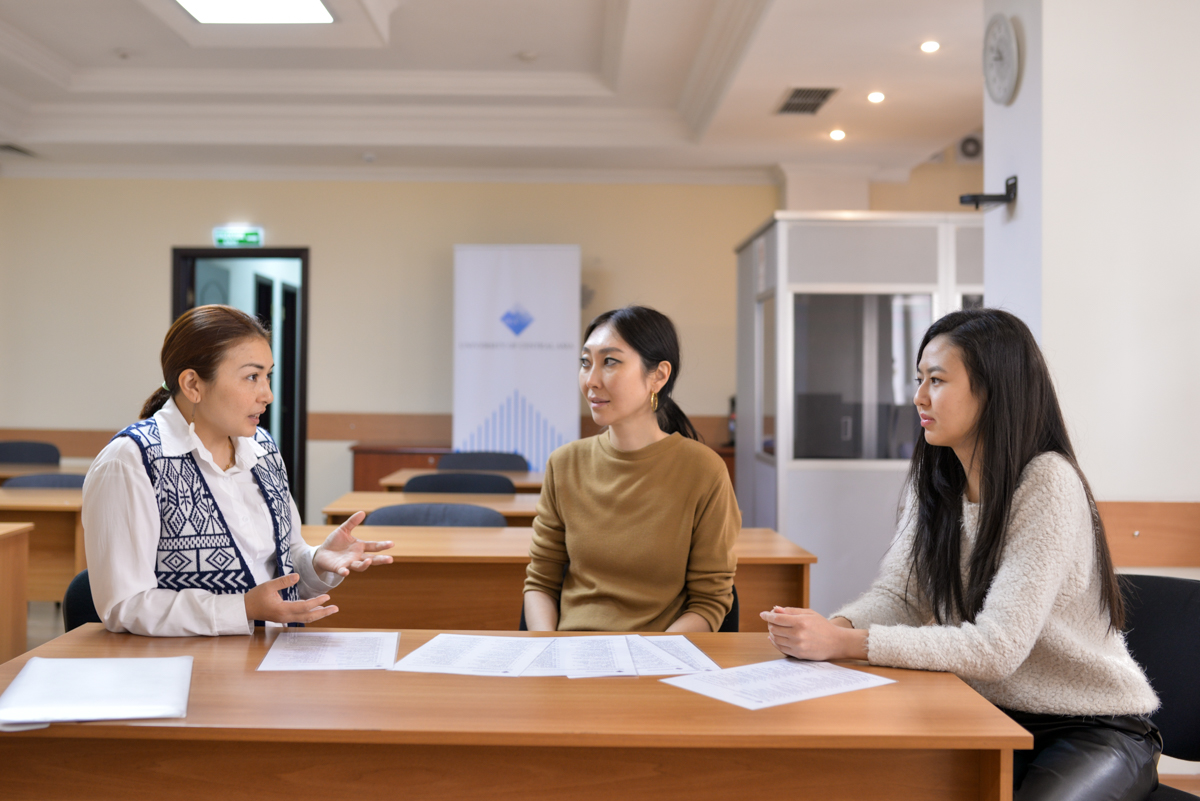
Asel Murzakulova: UCA Researcher Setting Benchmarks for Young Female Scientists
Over the past decades, the number of girls and women pursuing science degrees and careers has certainly increased. But how many of them today are leaders in their fields setting benchmarks?
According to the UN, women are typically given smaller research grants than their male colleagues and, while they represent about one-third of all researchers, only 12 percent of members of national science academies are women. Their work is underrepresented in high-profile journals, and they are often passed over for promotion. There is still work ahead to closing the gaps, and women and girls need amongst other things role models and their stories to help them persist.
Dr Asel Murzakulova is a leading scientist in Central Asia for her work in the fields of conflicts, migration, natural resource management, religion and nationalism. Senior Research Fellow at the University of Central Asia (UCA), she was awarded the International Medal of the Commission of National Education of Poland for her contribution to the development of civic education in Kyrgyzstan.
She views research as a means of improving the quality of life of people, and encouraging young aspiring female scientists.
“Research is passion, and scientific research gives satisfaction and happiness, and even strength,” says Dr Murzakulova.
“[However,] there are basic institutional and infrastructure gaps linked to the lack of women in research particularly in Kyrgyzstan. Approximately 30 percent of children have access to kindergarten facilities in the country, and mostly all schools are overcrowded in Bishkek. Usually, girls are the ones who are forced or expected to drop out, and the results are visible with the lower number of women in the formal labour market in comparison to men.”
Her own path has been decidedly different. In 2008, Dr Murzakulova left Bishkek for Cambridge, Massachusetts on a visiting scholarship at the Davis Center for Russian and Eurasian Studies at Harvard University; in 2013 she continued onto the Institute of Slavic, East European, and Eurasian Studies at the University of California, Berkeley.
When she returned to Central Asia and joined UCA’s Mountain Societies Research Institute in 2015, Dr Murzakulova brought a wide range of experience to the study of water management practices at the border of Kyrgyzstan and Tajikistan. Over the next five years the project hosted border experts from all over the world, making the Central Asian region a reference point for advancing knowledge about the challenges facing cross-border communities. Currently, there is no publication on border conflicts without a link to the research or policy brief undertaken by Dr Murzakulova’s team.
“Unfortunately, we also observed the limitation of the study,” said Dr Murzakulova. “It was not in our power to make politicians act in the interests of the Isfara River. When we conducted our trainings and stakeholder engagement with local decisionmakers, we were saying: “You are acting in the interests of the Kyrgyz people; you are acting in the interests of the Tajik people. And who will act in the interests of the Isfara River? Who will speak for the river? What does the river need?”
Caring for both the environment – the region’s fragile, unspoiled highlands – and its peoples is central to the work of this female scientist.
In 2021, Dr Murzakulova spoke at the UN Climate Change Conference on the issue of digital inclusion to enhance climate resilience. She believes that research is not just about collecting information and data but ensuring that it benefits society: “We conduct scientific research to share findings with partner institutions, such as the Aga Khan Foundation and Mountain Societies Development Support Programme, so that outcomes can reach the people as soon as possible.”
International Day of Women and Girls in Science is held every year on 11 February to help achieve full and equal access to and participation in science for women and girls, and to promote women’s equal access to full employment and decent work.













